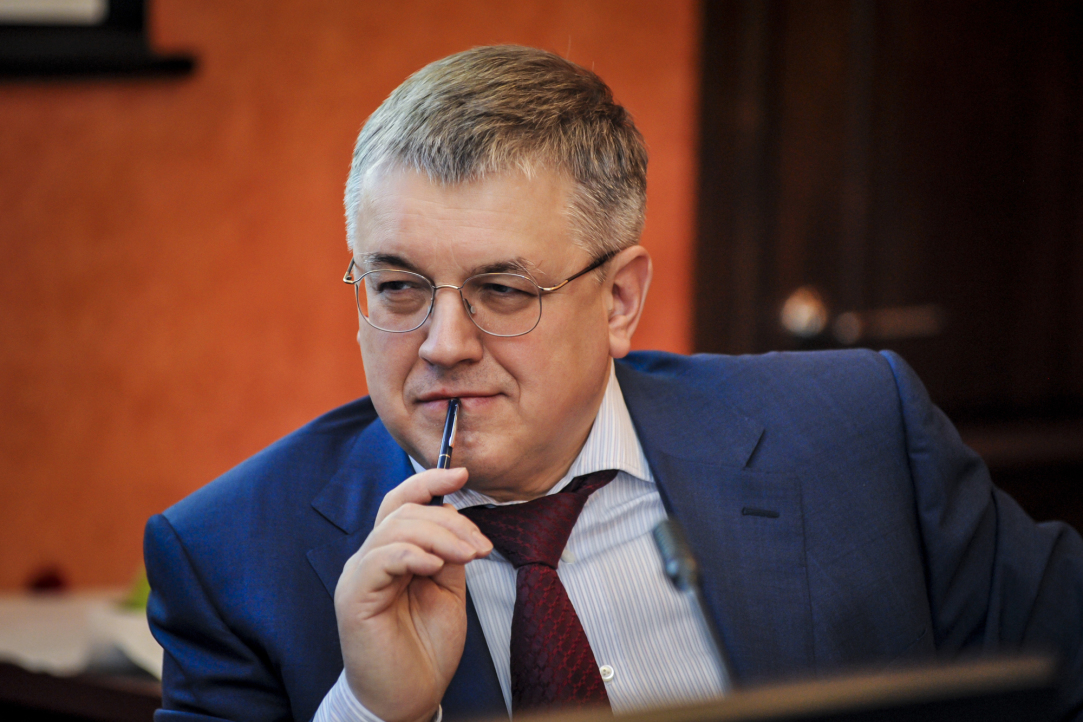‘What Is Most Dangerous Is Losing the Ability to Critically Evaluate Ourselves. And Our Sense of Humour’

HSE University Rector Yaroslav Kuzminov congratulates students, teachers and staff on the beginning of the university's 27th academic year.
Dear Friends, Colleagues, and Students!
I would like to congratulate us all as we begin HSE University’s 27th academic year!
Some time ago we were a project. Then we were a small university. Then we were a large university. Today HSE is more than a university. HSE is an intellectual community that is changing the world around it. We are not the only ones who abide by the professional standards that we have developed here at HSE. Our standards have come to be emulated by others, as well.
Our university continues to grow. As a result of the summer 2019 admissions cycle, we now have 43,000 students. More than 30,000 students study in HSE's continuing education programmes. And the number of students who have taken HSE online courses has now surpassed two million. Our online courses draw students from all over the world—they have 350,000 enrolees in the United States alone. HSE is also made up of almost 7,000 professors, lecturers, and research fellows.
But this growth does not only signify our success. It also poses a big risk—a risk that the HSE brand will overshadow our real achievements. Therefore, today I want to talk about our principles. Principles, after all, are not some kind of tangible assets that we take joy in when we possess them and others do not.
To the contrary, principles are that which we want others to share with us
I am certain that the ideals in which we believe are what have enabled HSE to grow and welcome new research teams, from philosophers to chemists. This undoubtedly plays a large role in applicants and their parents’ decision to come to HSE rather than a different university.
Professionalism. We do not imitate anything, and we teach our students to do the same. Studying at HSE is difficult. You must master every component of your chosen curriculum. Unimportant or useless courses do not exist here. This professionalism characterizes our expert research teams as well. HSE does not order projects and discuss their results in advance, for the sake of customer convenience.
Constructiveness. This is not just about being tolerant of someone else’s opinion, which is already a rarity in contemporary society, but a willingness to look for common ground with those you disagree with. While we always disagree, we are not interested in winning. Rather, we are interested in truth—not in expressing our principles, but in putting them into practice.
Patriotism. HSE is a Russian state university, and we work for the benefit of our great nation. Our patriotism is primarily expressed in a willingness to help others, to bear responsibility for what is happening beyond our backyards. These are not just mottos, but real actions. Patriotism begins with the participation of HSE students and teachers in local urban communities, with Discovering Russia Anew student expeditions, with volunteering at school Olympiads. And it ends with the large projects of our researchers, which have a real impact on the economic, social, and technological policies of our country.
Global Engagement. If we are engaged in scholarly and scientific research, then it is always at a global level. In today’s world, there is not a single state whose researchers participated in an even half of the world’s scholarly, scientific, and technological fronts. This means that we all need each other. Agreeing to limit research and educational practices to everyday language, to a familiar circle of consumers (even if they respect you and pay well), inevitably leads to provincialism. Today, the majority of our colleagues publish in international journals and participate in international conferences. HSE is a leader in terms of the number of international colleagues we engage in collaborative research and educational projects. But we still need to ensure the same kind of inclusion of our students.
Scientific and Educational Honesty. We have a record: over the summer, HSE did not have a single faulty publication in the indexed journals. For a huge university, which up to 500 teachers and researchers re-join each year, this is a true achievement. Behind this achievement lies a constant and often unpleasant task. At HSE, we do not copy or download work written by others. And this is not tolerated among our students either.
Freedom and Responsibility. Everyone, from the HSE Lyceum to our graduate programmes, can choose from a selection that is as wide as possible. A significant part of a student’s curriculum is determined by the student themselves. And a significant portion of the research programme is formed on the basis of support for initiative topics that have won competitions. But we are all responsible for the quality of how we execute our choice: a student can be expelled for not fulfilling part of his or her curriculum; a researcher or instructor can be dismissed for insufficient internationally recognized research output.
And Last, but No Less Important.Every year, in order to continue and develop further, a university must strive not to succumb to pride. In the ‘90s and early 2000s, HSE grew, because we learned from others and searched within ourselves for flaws—and this was at a time when many around us were saved by the fact that they were proud of themselves and stood up for the best education in the world. What is most dangerous is losing the ability to critically evaluate ourselves. And our sense of humour. Let’s preserve these abilities together.

